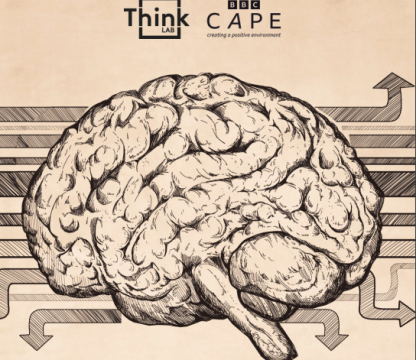Project Overview
Approximately 15% (1 in 7) of working-age people in the UK are neurodivergent. Despite their high prevalence in the general population, only about 60-70% of neurodiverse people are estimated to actively participate in the workforce. The reasons for the underrepresentation of neurodiverse people in the workplace are complex, encompassing a wide range of individual, social, and organisational factors. Among these factors, mental health issues among neurodiverse individuals (e.g., severe social anxiety) are frequently attributed as a primary cause. However, in many cases societal stigmas and limited awareness surrounding neurodiversity, as well as a failure to provide reasonable workplace adjustments, deter neurodiverse individuals from entering the workforce more than any other factor.
In response to this challenge, we embarked on a transformative 10-month collaboration with the BBC, guided by the expertise of The University of Cambridge ThinkLab. This endeavour, which also saw contributions from luminaries like Professor Temple Grandin, one of the world’s most well-known and inspiring speakers on autism, was rooted deeply in the principle of co-design. Our diverse team comprised 20 dedicated Cambridge researchers, with half proudly identifying as neurodivergent. These scholars hailed from a myriad of backgrounds and specialised in fields as varied as neuroscience, psychology, political science, media, and several humanities disciplines.This interdisciplinary approach allowed us to extract insights from diverse sources: academic literature, personal testimonials, and interviews with neurodiverse BBC employees. The result was a holistic report, teeming with actionable strategies to enrich the workplace experience for neurodivergent individuals. It brings us immense pride to highlight that our insights were not just theoretical; they were embraced and instituted as company policy by the BBC.
Our collaboration with the BBC is a testament to our rigorous research approach, unwavering commitment to inclusivity, and the tangible impact we aim to deliver. As we reflect on our past endeavours and set our sights on future projects, we are guided by the ethos of pushing boundaries, pioneering tangible solutions, and making meaningful strides in reshaping workplace dynamics.
For this project, the University of Cambridge ThinkLab partnered with the BBC to investigate how organisations can create an inclusive workplace culture that recognises and celebrates neurodiversity. The 10-month research collaboration culminated in a comprehensive report that outlines different ways workplaces can be more accommodating for neurodiverse individuals, including by implementing reasonable adjustments and inclusive hiring, onboarding, and mentoring practices. The report draws upon academic literature, online testimonials, news, and interviews with neurodiverse BBC employees. It makes numerous recommendations for workplace adjustments and aims to spark a large-scale public discussion about how to improve the workplace experience of neurodivergent individuals.
The ThinkLab is currently working with BBC to provide additional accessible versions for users and an audio version is in the works, more updates will be coming soon.
The report can be accessed here.



